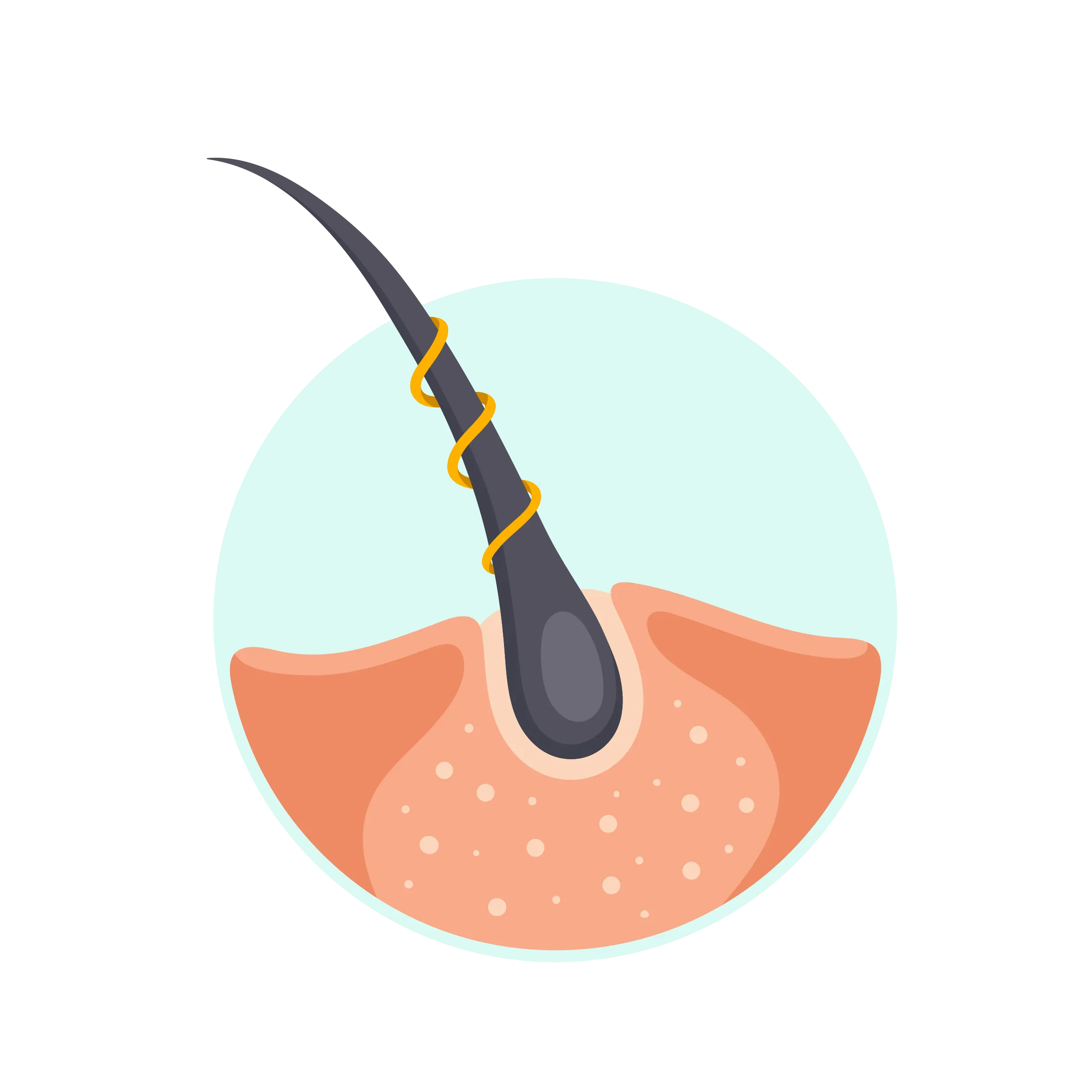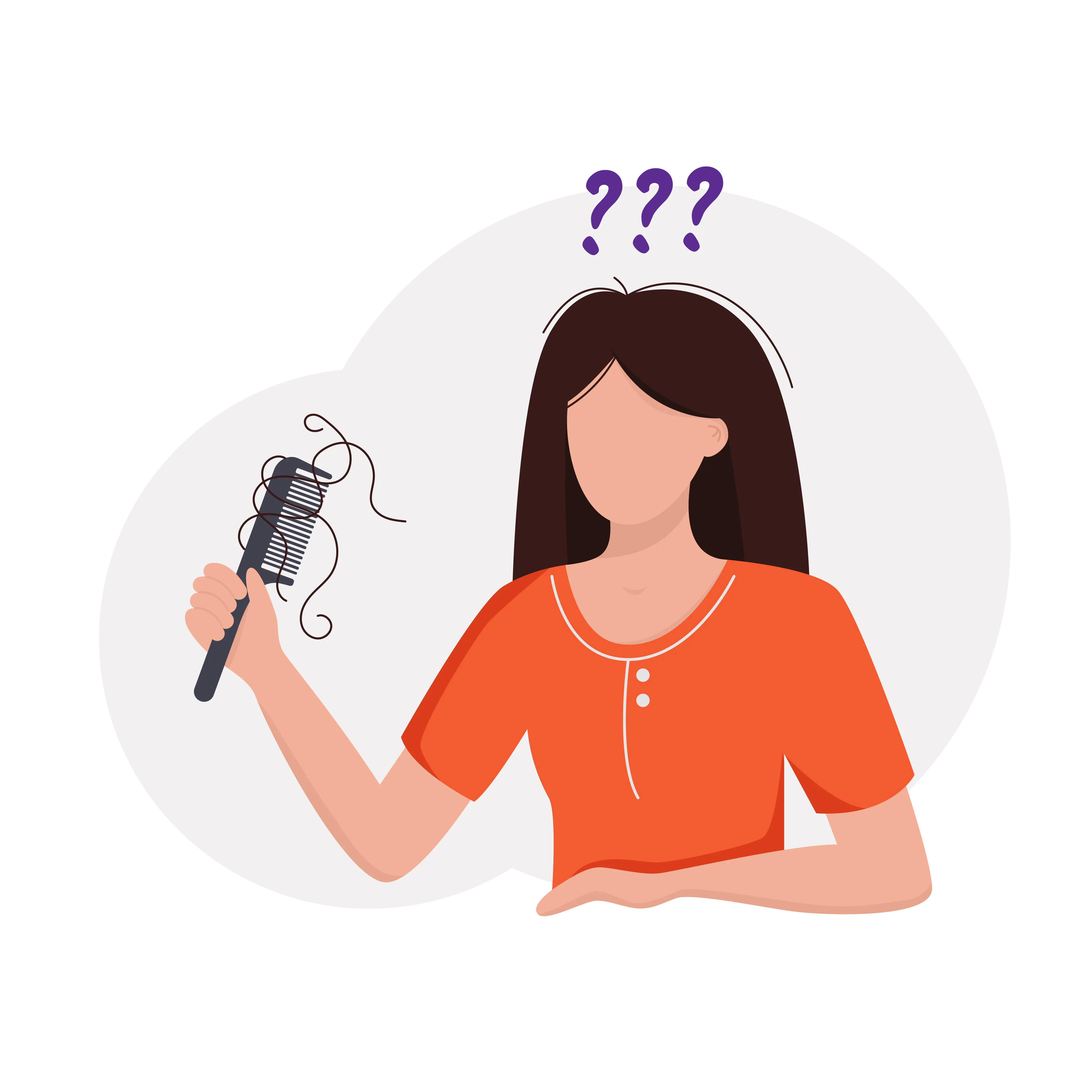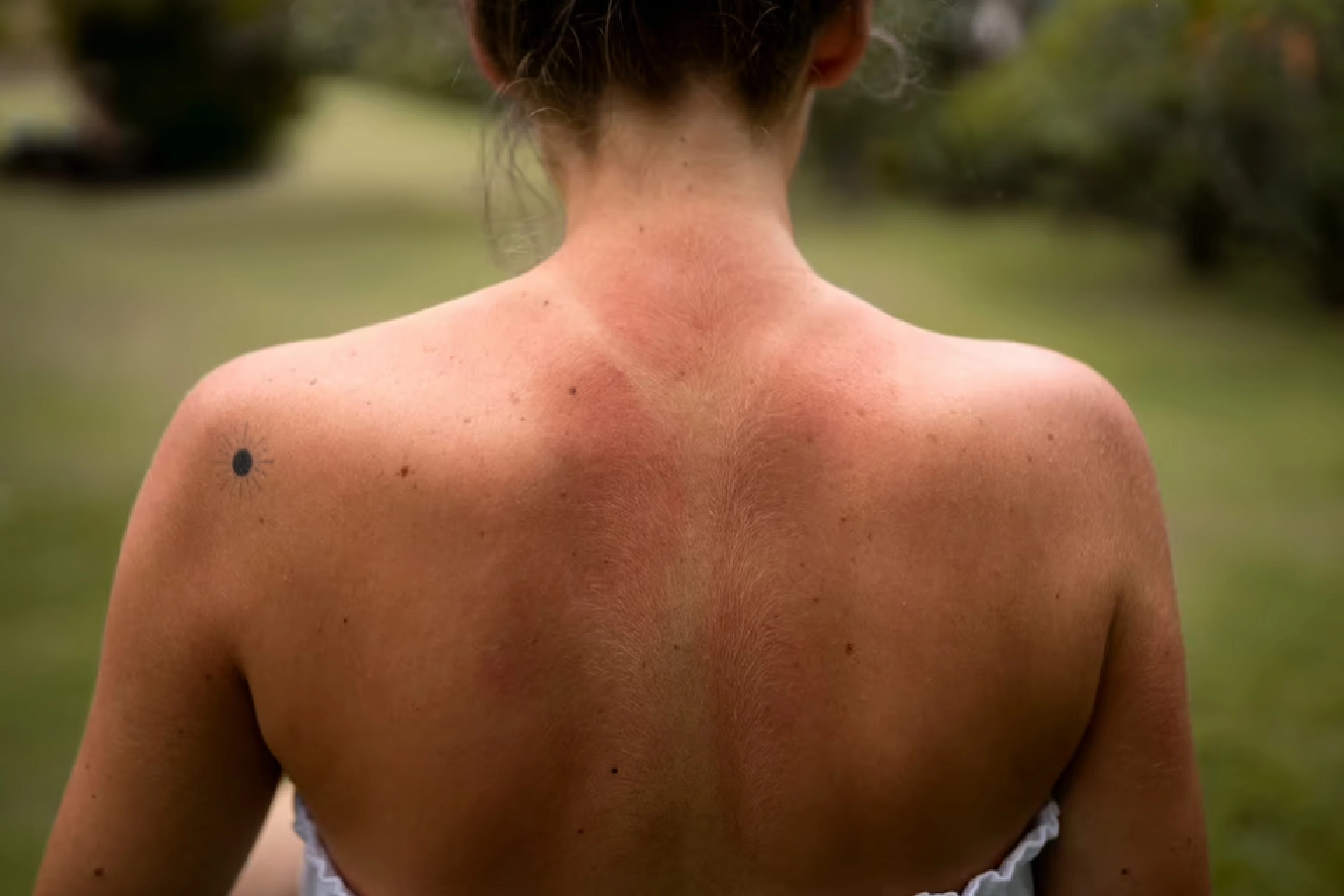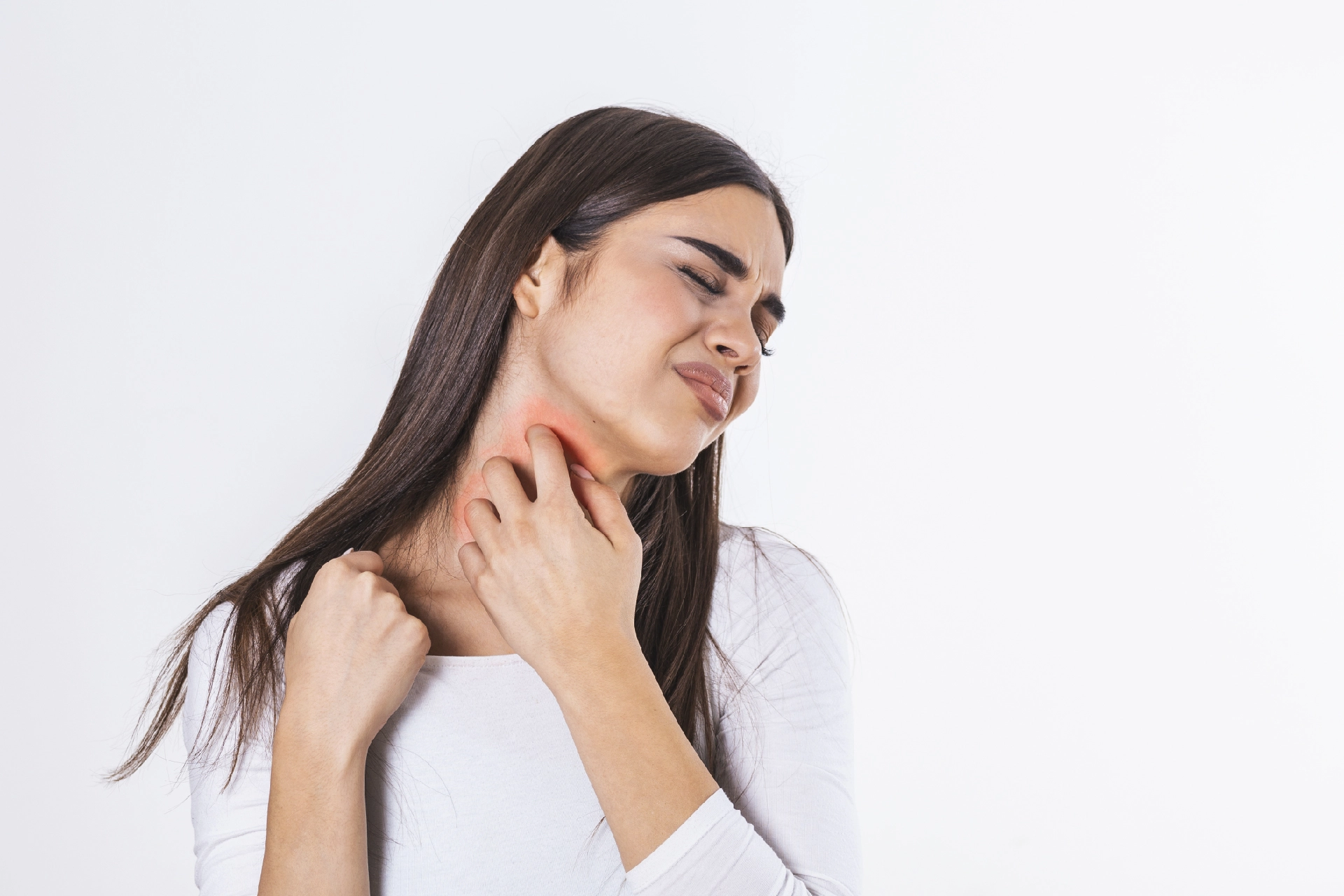Prosthodontics | 7 min read
Simple Home Remedies on How to Stop Hair Fall During Monsoon
Medically reviewed by
Table of Content
Key Takeaways
- Use hibiscus and aloe vera shampoos to cleanse your hair
- Oil your scalp regularly with castor and coconut oil
- Eat a well-balanced wholesome diet loaded with nutritious food
Hair fall during monsoon is becoming increasingly common. The humidity caused by monsoons leaves your hair dry and brittle, accounting for the hair loss problem. The main reason for hair fall in monsoon is the presence of environmental pollutants. They weaken the scalp by causing fungal infections that eventually lead to hair loss. However, by using simple hair loss remedies, you can address hair fall during monsoon.
These home remedies include oil massages or diet suggestions that can be part of your daily routine for hair loss control. So, read on to see the top tips to control hair fall and say goodbye to hair loss!
How To Stop Hairfall In Monsoon
Cleanse your scalp with a mild shampoo
It is important to wash your scalp with mild shampoos as harsh chemicals make your hair drier during the monsoons. Gently massage your scalp with shampoo as doing this on regular basis is an effective scalp treatment for hair loss. Ensure that your shampoo contains natural ingredients like hibiscus and aloe vera. Hibiscus stimulates the growth of dormant hair follicles thereby helping in the regrowth of hair. Being rich in amino acids and vitamins, hibiscus also prevents early greying of hair. Another natural ingredient that helps in boosting hair growth is aloe vera. Apart from repairing a damaged scalp, it activates the regrowth of hair. Multani mitti or fuller earth is yet another ingredient that can be also used as shampoo. It helps in eliminating dandruff. Its good absorbent properties act conditioner while its abrasive properties remove the dryness of the scalp. [1,2]
Oil your scalp frequently as a natural hair loss treatment
During monsoons, it is quite natural for hair to turn dry and frizzy. Therefore, proper oiling of hair is essential. While coconut oil is effective in reducing the dryness of the scalp, another suitable alternative is to use castor oil. Packed with anti-fungal and anti-bacterial properties, castor oil helps in nourishing hair. As it is a highly viscous oil, mix one part of this oil with any
other preferred oil prior to application. You can slightly warm the oil for better results but take care not to overheat the oil. Hot oil can damage your hair follicles so it is better to avoid it. [3,4]
Use fenugreek seeds to minimize your hair loss problem
Fenugreek seeds are found to be effective in fighting hair fall and dandruff. The presence of nicotinic acid makes them useful in treating scalp issues such as baldness and thinning of hair. You can prepare a fenugreek hair pack by grinding the fenugreek seeds soaked overnight and making a paste out of it. Applying this pack on a weekly basis helps control hair fall in monsoons. [5]

Apply onion juice and provide nourishment to your hair
Onion contains minerals like sulfur that helps in minimizing hair breakage and thinning. You can extract the juice from onions and apply it to the scalp for improving the volume and strength of your hair. Apart from its conditioning benefits, it also helps in the regrowth of hair. Onion juice also contains antioxidants that keep your scalp healthy and free from infections. [6,7,8]
Eat a well-balanced diet to control hair fall
For proper hair growth, it is equally important to consume a healthy and nutritious diet. Simply ensure that your plate is loaded with proteins, minerals, and calcium-rich foods. Vegetables like carrots, spinach, and sweet potatoes that are rich in beta-carotene stimulate the growth of hair follicles. If you prefer non-vegetarian food, eggs and salmon are good alternatives for hair growth. [9,10]
Additional read: Best Diet Plan for Weight LossKeep your hair dry for minimizing hair loss
Take measures to keep your hair dry during monsoons. There is a tendency for environmental pollutants and microbes to settle on wet hair, resulting in hair fall. Therefore, dry your hair properly. It is equally important to ensure that you don’t tie your wet hair as this may result in the breaking of hair strands. [11]
Avoid complex hairdos
Weak monsoon hair may easily break while attempting complex hairstyles. Complex hairstyles need lots of twists and turns that may increase the chance of tangling. Moreover, they also require a long time, increasing the chance of hair pulling. Instead, match your outfit with various hair accessories, including caps and scarves. The accessories will cover if you are not happy with the hairdo.
Don’t do any damaging hair styling procedures
Professional hair treatments will make the hair oily and further damage it, making the hair more likely to break. During monsoons, the likelihood of damage increases as the hair would be weak because of the ambient humidity and dirt in the atmosphere. Hair sprays and gels may also create the same effect, so avoid them.
Don’t postpone hairwashing
In monsoons, your hair is more likely to attract dirt due to damp hair and dirty rainwater. And dirt may contain fungus, increasing the chance of fungal infection in your hair. However, you can clean all the dirt with a thorough hair wash. So ensure you stick to your hair washing schedule even if you feel lazy.
Use Conditioner More Than Shampoo
Shampoos are necessary for cleaning; however, you should use more conditioner in the monsoon season. Conditioners make your hair absorb more water. So, they moisturize hair; conditioners may also keep the scalp from making excess sebum. Excess sebum can cause hair problems, including hair loss.

Why Is There An Increase Of Hair Fall In Monsoon?
Hair fall in monsoon is quite common; however, you might be wondering why it is so. Here are a few reasons why hair loss happens during monsoon.
Lack of proper nutrition
Nutrition is important for your body to keep producing proteins necessary for hair. For example, if your body does not have enough biotin, you might see hair thinning. Zinc deficiency can also cause hair loss because it helps the body in protein synthesis and the normal functioning of cells.
Treating your hair
Hair treatments have a risk of damaging your hair, and the risk increases during monsoon. Humidity increases the likelihood of dirt accumulation in your hair, etc. It can weaken your hair. Hair treatments further weaken your hair because it often makes your hair greasy.
Infections
As dirt accumulation is highly likely in monsoon season, the likelihood of fungal infection also increases. Fungal infections weaken your scalp and reduce its capacity to hold follicles, resulting in hair loss.
Stress
Stress is also another factor for hair loss during monsoon. People stress too much about hair loss, which produces increased hair loss. The reason for hair is that significant emotional stress can cause the hair follicle to be in the telogen or resting phase.

Tips To Avoid Hair Fall This Monsoon Season
Here are a few tips to avoid hair fall:
- Wide tooth combs can help you comb your hair without much pulling
- Take care of your scalp to avoid dandruff
- Use more conditioner than shampoo
- Only tie your hair after drying, which will take a long time in the monsoon
- Keep your comb private
- Sleep regularly
To make your hair shine this season, follow these simple tips to control hair fall and relieve yourself from the unnecessary stress of hair loss. However, if you are facing consistent hair fall, you may need customized advice. Book an appointment with a specialist close to you using Bajaj Finserv Health and tackle your hair loss problems today.
References
- https://www.aad.org/public/diseases/psoriasis/treatment/genitals/scalp-hair-loss
- https://www.healthline.com/health/multani-mitti-for-hair
- https://www.healthline.com/health/beauty-skin-care/castor-oil-hair-growth
- https://www.aad.org/public/diseases/hair-loss/treatment/tips
- https://www.healthline.com/nutrition/fenugreek-for-hair#bottom-line
- https://www.medicalnewstoday.com/articles/70956#diagnosis
- https://pubmed.ncbi.nlm.nih.gov/12126069/
- https://www.medicalnewstoday.com/articles/319515
- https://www.aarp.org/health/conditions-treatments/info-2017/thinning-hair-fd.html
- https://health.clevelandclinic.org/your-guide-to-aging-hair/
- https://www.aad.org/public/diseases/hair-loss/insider/stop-damage
Disclaimer
Please note that this article is solely meant for informational purposes and Bajaj Finserv Health Limited (“BFHL”) does not shoulder any responsibility of the views/advice/information expressed/given by the writer/reviewer/originator. This article should not be considered as a substitute for any medical advice, diagnosis or treatment. Always consult with your trusted physician/qualified healthcare professional to evaluate your medical condition. The above article has been reviewed by a qualified doctor and BFHL is not responsible for any damages for any information or services provided by any third party.





